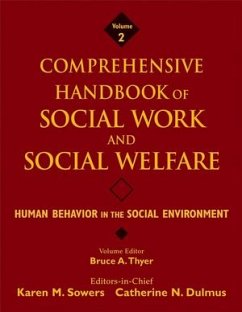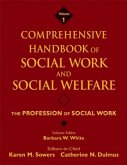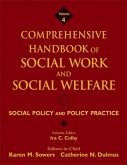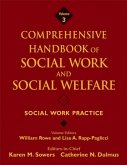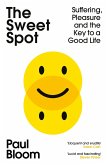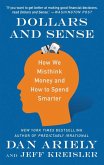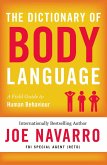Human Behavior in the Social Environment
Human Behavior in the Social Environment
- Gebundenes Buch
- Merkliste
- Auf die Merkliste
- Bewerten Bewerten
- Teilen
- Produkt teilen
- Produkterinnerung
- Produkterinnerung
The Comprehensive Handbook of Social Work and Social Welfare, Volume 2: Human Behavior in the Social Environment features contributions from leading international researchers and practitioners and presents the most comprehensive, in-depth source of information on the field of social work and social welfare.
Andere Kunden interessierten sich auch für
![The Profession of Social Work The Profession of Social Work]() The Profession of Social Work254,99 €
The Profession of Social Work254,99 €![Comprehensive Handbook of Social Work and Social Welfare, Set Comprehensive Handbook of Social Work and Social Welfare, Set]() K SowersComprehensive Handbook of Social Work and Social Welfare, Set863,99 €
K SowersComprehensive Handbook of Social Work and Social Welfare, Set863,99 €![Social Policy and Policy Practice Social Policy and Policy Practice]() Social Policy and Policy Practice254,99 €
Social Policy and Policy Practice254,99 €![Social Work Practice Social Work Practice]() Social Work Practice254,99 €
Social Work Practice254,99 €![The Sweet Spot The Sweet Spot]() Paul BloomThe Sweet Spot8,99 €
Paul BloomThe Sweet Spot8,99 €![Dollars and Sense Dollars and Sense]() Dan ArielyDollars and Sense7,49 €
Dan ArielyDollars and Sense7,49 €![The Dictionary of Body Language The Dictionary of Body Language]() Joe NavarroThe Dictionary of Body Language8,49 €
Joe NavarroThe Dictionary of Body Language8,49 €-
-
-
The Comprehensive Handbook of Social Work and Social Welfare, Volume 2: Human Behavior in the Social Environment features contributions from leading international researchers and practitioners and presents the most comprehensive, in-depth source of information on the field of social work and social welfare.
Produktdetails
- Produktdetails
- Verlag: John Wiley & Sons / Wiley
- Artikelnr. des Verlages: 14676272000
- Volume 2 edition
- Seitenzahl: 600
- Erscheinungstermin: 1. Februar 2008
- Englisch
- Abmessung: 253mm x 184mm x 45mm
- Gewicht: 1166g
- ISBN-13: 9780471762720
- ISBN-10: 0471762725
- Artikelnr.: 23157185
- Herstellerkennzeichnung
- Libri GmbH
- Europaallee 1
- 36244 Bad Hersfeld
- gpsr@libri.de
- Verlag: John Wiley & Sons / Wiley
- Artikelnr. des Verlages: 14676272000
- Volume 2 edition
- Seitenzahl: 600
- Erscheinungstermin: 1. Februar 2008
- Englisch
- Abmessung: 253mm x 184mm x 45mm
- Gewicht: 1166g
- ISBN-13: 9780471762720
- ISBN-10: 0471762725
- Artikelnr.: 23157185
- Herstellerkennzeichnung
- Libri GmbH
- Europaallee 1
- 36244 Bad Hersfeld
- gpsr@libri.de
Editors-in-Chief, Karen M. Sowers, PhD, is Professor and Dean at the University of Tennessee College of Social Work in Knoxville, Tennessee. Catherine N. Dulmus, PhD, is Associate Professor of Social Work and Director of the?Buffalo Center?for Social Research at the University of Buffalo, New York.? She is coeditor of several social work journals and has authored or coedited a number of books, including Essentials of Child Welfare, Handbook of Preventive Interventions for Children and Adolescents , Handbook of Preventive Interventions for Adults, and The Social Work and Human Services Treatment Planner. Volume Editor, Bruce A. Thyer, PhD, is a Professor of Social Work at Florida State University. His research has focused on evidence-based practice, evaluation research, behavior analysis, social work theory, and clinical social work. He has co-written or co-authored over 20 books, including, most recently, Social Work in Mental Health: An Evidence-Based Approach (Wiley), A Social Worker's Guide to Evaluating Practice Outcomes, Program Evaluation: An Introduction,?Fourth Edition, and International Perspectives on Evidence-based Practice in Social Work.
Foreword.
Series Preface.
Karen M. Sowers and Catherine M. Dulmus.
Preface
Bruce A. Thyer.
Acknowledgments.
Contributors.
1. Human Behavior and the Social Environment: Exploring Conceptual
Foundations.
Susan I. Stone, Stephanie Berzin, Sarah Taylor, and Michael J. Austin.
2. Respondent Learning Theory.
Bruce A. Thyer.
3. Operant Learning Theory.
Stephen E. Wong.
4. Cognitive Behavioral Theory.
Paula S. Nurius and Rebecca J. Macy.
5. Ego Psychology Theory.
Eda Goldstein.
6. Self Psychology Theory.
Joseph Palombo.
7. Attachment Theory.
Michelle Mohr Carney and Frederick Buttell.
8. Psychosocial Theory.
Roberta R. Greene.
9. Cognitive Development Theory.
Tammie Ronen.
10. Person Centered Theory.
Michael J. Holosko, Jeffrey Skinner, and Ra'Shanda S. Robinson.
11. Genetic Theory.
Laura Pankow.
12. Ecosystems Theory.
Mark A. Mattaini.
13. Moral Development Theory.
Frederick Buttell and Michelle Mohr Carney.
14. Small Group Theory.
Lorraine Salas, Dominique Roe-Sepowitz, and Craig Winston LeCroy.
15. Family Systems Theory.
Martha Morrison Dore.
16. Organizational Theory.
John E. Tropman.
17. A Critique of Stage Theories of Human Development.
Martha Pelaez, Jacob L. Gewirtz, and Stephen E. Wong.
18. The Potentially Harmful Effects of Theory in Social Work.
Bruce A. Thyer.
Series Preface.
Karen M. Sowers and Catherine M. Dulmus.
Preface
Bruce A. Thyer.
Acknowledgments.
Contributors.
1. Human Behavior and the Social Environment: Exploring Conceptual
Foundations.
Susan I. Stone, Stephanie Berzin, Sarah Taylor, and Michael J. Austin.
2. Respondent Learning Theory.
Bruce A. Thyer.
3. Operant Learning Theory.
Stephen E. Wong.
4. Cognitive Behavioral Theory.
Paula S. Nurius and Rebecca J. Macy.
5. Ego Psychology Theory.
Eda Goldstein.
6. Self Psychology Theory.
Joseph Palombo.
7. Attachment Theory.
Michelle Mohr Carney and Frederick Buttell.
8. Psychosocial Theory.
Roberta R. Greene.
9. Cognitive Development Theory.
Tammie Ronen.
10. Person Centered Theory.
Michael J. Holosko, Jeffrey Skinner, and Ra'Shanda S. Robinson.
11. Genetic Theory.
Laura Pankow.
12. Ecosystems Theory.
Mark A. Mattaini.
13. Moral Development Theory.
Frederick Buttell and Michelle Mohr Carney.
14. Small Group Theory.
Lorraine Salas, Dominique Roe-Sepowitz, and Craig Winston LeCroy.
15. Family Systems Theory.
Martha Morrison Dore.
16. Organizational Theory.
John E. Tropman.
17. A Critique of Stage Theories of Human Development.
Martha Pelaez, Jacob L. Gewirtz, and Stephen E. Wong.
18. The Potentially Harmful Effects of Theory in Social Work.
Bruce A. Thyer.
Foreword.
Series Preface.
Karen M. Sowers and Catherine M. Dulmus.
Preface
Bruce A. Thyer.
Acknowledgments.
Contributors.
1. Human Behavior and the Social Environment: Exploring Conceptual
Foundations.
Susan I. Stone, Stephanie Berzin, Sarah Taylor, and Michael J. Austin.
2. Respondent Learning Theory.
Bruce A. Thyer.
3. Operant Learning Theory.
Stephen E. Wong.
4. Cognitive Behavioral Theory.
Paula S. Nurius and Rebecca J. Macy.
5. Ego Psychology Theory.
Eda Goldstein.
6. Self Psychology Theory.
Joseph Palombo.
7. Attachment Theory.
Michelle Mohr Carney and Frederick Buttell.
8. Psychosocial Theory.
Roberta R. Greene.
9. Cognitive Development Theory.
Tammie Ronen.
10. Person Centered Theory.
Michael J. Holosko, Jeffrey Skinner, and Ra'Shanda S. Robinson.
11. Genetic Theory.
Laura Pankow.
12. Ecosystems Theory.
Mark A. Mattaini.
13. Moral Development Theory.
Frederick Buttell and Michelle Mohr Carney.
14. Small Group Theory.
Lorraine Salas, Dominique Roe-Sepowitz, and Craig Winston LeCroy.
15. Family Systems Theory.
Martha Morrison Dore.
16. Organizational Theory.
John E. Tropman.
17. A Critique of Stage Theories of Human Development.
Martha Pelaez, Jacob L. Gewirtz, and Stephen E. Wong.
18. The Potentially Harmful Effects of Theory in Social Work.
Bruce A. Thyer.
Series Preface.
Karen M. Sowers and Catherine M. Dulmus.
Preface
Bruce A. Thyer.
Acknowledgments.
Contributors.
1. Human Behavior and the Social Environment: Exploring Conceptual
Foundations.
Susan I. Stone, Stephanie Berzin, Sarah Taylor, and Michael J. Austin.
2. Respondent Learning Theory.
Bruce A. Thyer.
3. Operant Learning Theory.
Stephen E. Wong.
4. Cognitive Behavioral Theory.
Paula S. Nurius and Rebecca J. Macy.
5. Ego Psychology Theory.
Eda Goldstein.
6. Self Psychology Theory.
Joseph Palombo.
7. Attachment Theory.
Michelle Mohr Carney and Frederick Buttell.
8. Psychosocial Theory.
Roberta R. Greene.
9. Cognitive Development Theory.
Tammie Ronen.
10. Person Centered Theory.
Michael J. Holosko, Jeffrey Skinner, and Ra'Shanda S. Robinson.
11. Genetic Theory.
Laura Pankow.
12. Ecosystems Theory.
Mark A. Mattaini.
13. Moral Development Theory.
Frederick Buttell and Michelle Mohr Carney.
14. Small Group Theory.
Lorraine Salas, Dominique Roe-Sepowitz, and Craig Winston LeCroy.
15. Family Systems Theory.
Martha Morrison Dore.
16. Organizational Theory.
John E. Tropman.
17. A Critique of Stage Theories of Human Development.
Martha Pelaez, Jacob L. Gewirtz, and Stephen E. Wong.
18. The Potentially Harmful Effects of Theory in Social Work.
Bruce A. Thyer.

